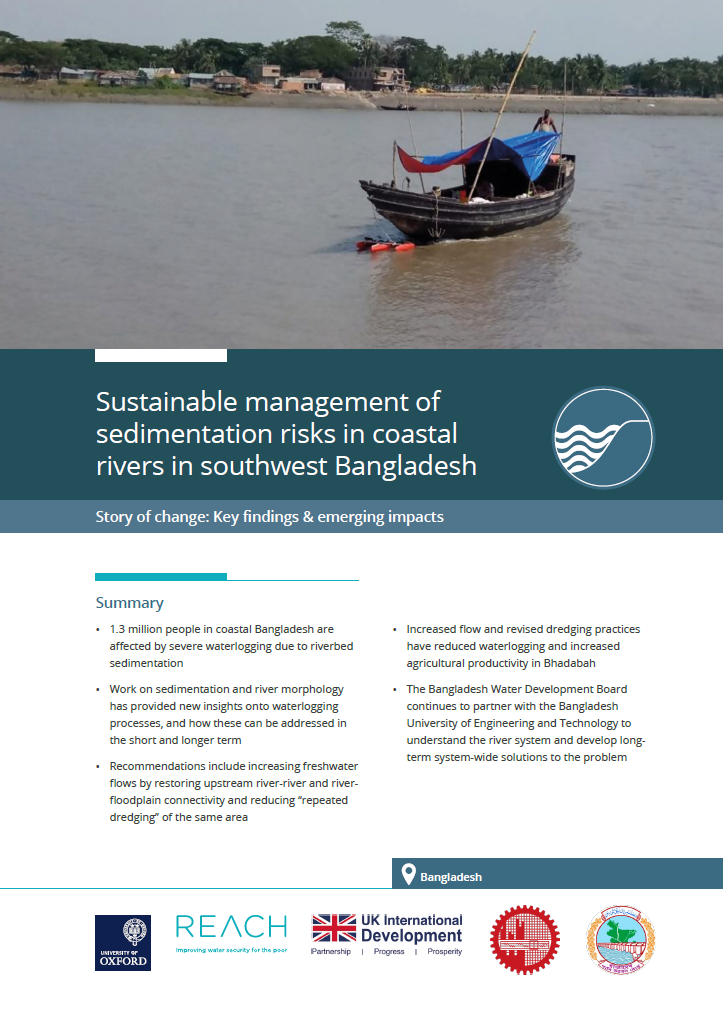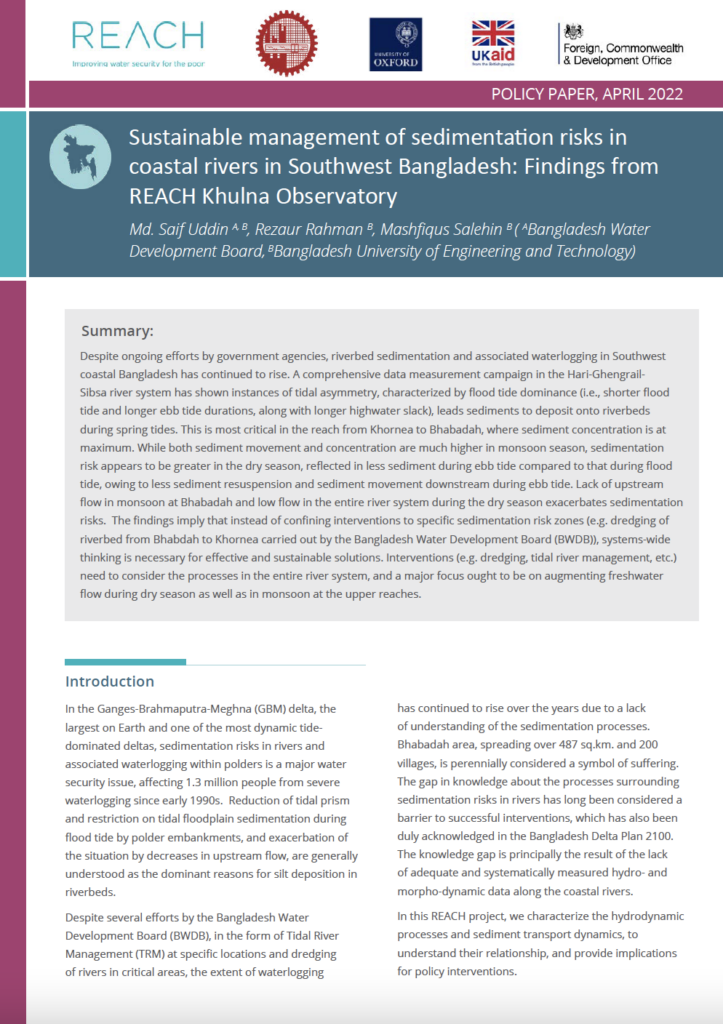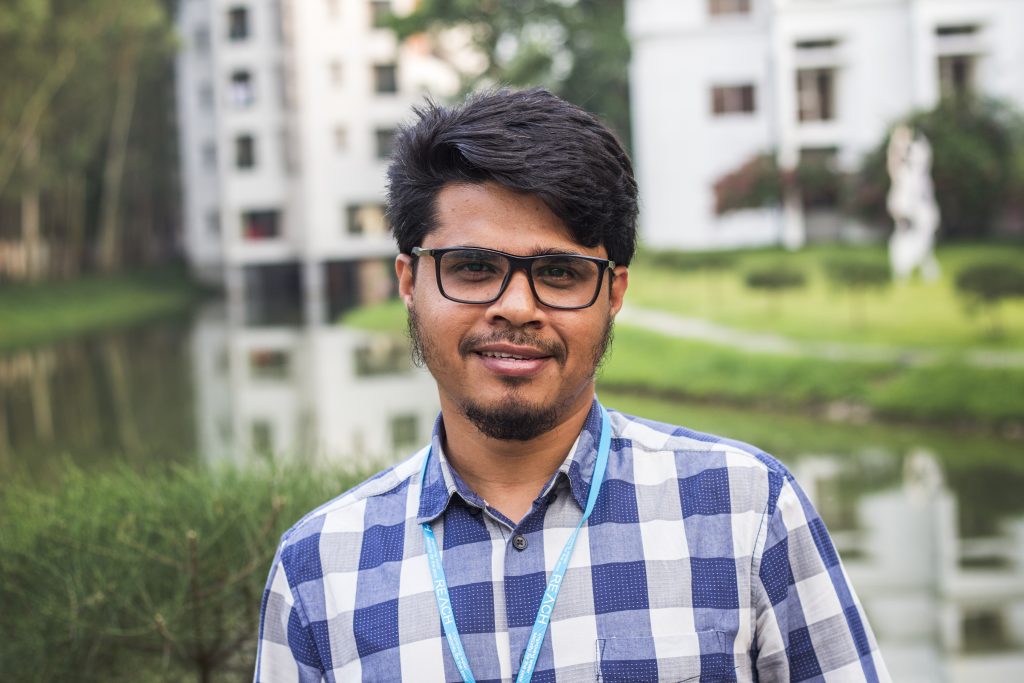
Improving water security for the poor

Sustainable management of sedimentation risks in coastal rivers in southwest Bangladesh
Bangladesh’s Delta Plan 2100 identified river sedimentation and associated water-logging as one of Coastal Bangladesh’s main water security issues. 1.3 million people in Coastal Bangladesh have been impacted by severe waterlogging since the early 1990s, restricting key livelihood activities, reducing agricultural yields, and affecting drinking water quality. As part of the REACH programme, a research team from the Bangladesh University of Engineering and Technology and the Bangladesh Water Development Board (BWDB) have characterized hydrodynamic processes and sediment transport dynamics in the area, with potential implications for different types of interventions. Recommendations include increasing freshwater flows by restoring upstream river-river and river-floodplain connectivity and reducing “repeated dredging” of the same area.


